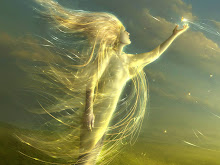“Have you ever had a dream Neo, that you were so sure it was real? What if you were unable to wake from that dream, how would you know the difference between the dream world and the real world?” - Morpheus
This is the first quote from the Matrix shown in a video called “Return to the Source: Philosophy & the Matrix”, a must watch if you are interested in philosophy or even if your just trying to figure out what the hell does the Matrix series mean anyway.
To say that I had an interesting semester would be an understatement. What I’m trying to do in my spare time between the next one is to keep fresh in mind the overwhelming amount of insight that me and my friends received. What the Matrix series did in short was to tie up our entire syllabus neatly into this awesome trilogy which was even more delightfully explained in the hour long video I mentioned. So the paper we have is called emergence and growth of psychology which basically is to do with the origin of conventional psychology as a discipline from its roots in physiology and philosophy to cognitive neuroscience. This disciplinary evolution has to do with differences in approaches to basic questions regarding life, death, choice, the nature of reality and morality; which are exactly the questions the Matrix series deals with.
The success of the matrix is to do with a lot of things. The special effects of bullet time technology and the martial art stunts are I believe the least of them. The strength of the movie is its plot itself. It presents the most intricate metaphor for the human condition. The idea that we are all trapped in a prison of illusory reality and are being manipulated by someone or something like puppets on strings is a powerful image. It echoes with humanity’s increasing disillusionment with the idea of control at an institutional level. In the movies, it might be the machines who exploit the energies of humankind, but it is an indicator of how increasing violence against all forms of life is a result of a vacuum of what is essentially humane in humanity.
Another ontological question posed through the characters to the viewer is whether what we believe to be real is true. While the movies talk about the matrix as a programmed reality, a trap, the real question here is to do with the nature of the self. As the matrix is governed by laws of the matrix, so is our world governed by the laws of physicality thus as the Merovingian aptly puts it, “ You see there is only one constant. One universal. It is the only real truth. Causality. Action, reaction. Cause and effect. ” the Merovingian is the typical supporter of determinism. He explains that in determining the antecedents of any event lies the key to control. When that is lost, choice is lost. “What is the reason? Soon the why and the reason are gone and all that matters is the feeling. This is the nature of the universe. We struggle against it, we fight to deny it; but it is of course a lie. Beneath our poised appearance we are completely out of control… Choice is an illusion created between those with power and those without.”
And yet, it is Morpheus’ faith that gives them the power to get a hold of the Keymaker and helps Neo to reach the Architect. Faith though blind but aware of the fact that even if they are happy in their state of slumberous dream-reality and even if it is with consent it is an untrue reality they are living in. The choice of taking a red or blue pill in this context refers to the extent to which we as active and responsible individuals become aware of our purpose in the reality that we have constructed for ourselves. Do we choose to deal with the difficult consequences of doing what we know is right in the face of the perennially easy and shortcut alternative? Are we blissfully ignorant?
The second movie in contrast shows how Neo despite understanding the reality and knowing it at a very direct experienced sense still fails because he is in love. His status as “the one” demands that he let go of his personal identity for the sake of the group. He still chooses to save Trinity. The ritualistic dance that’s shown in the second movie is a celebration of the uniformity of the human body; it is public and a means to summon the energies towards the better of all. Tantra is a branch of theology which focuses on instrumentation rather than the consciousness. Thus transcendence of the body using the body is achieved through sex.
Adding intrigue to the recipe is the interesting selection of names all carrying mythological, biblical or spiritual connotations. Neo whose name is actually Anderson, comes from Andros, Greek for Man. So Neo is like the son of man, who is resurrected, can perform miracles and thus is a character rooted in the Hebrew bible which speaks of a Messiah and also prophecies. Similarly trinity is symbolic of the Hindu concept of the trinity of gods Brahma, Vishnu and Shiva together in charge of creation preservation and destruction of the cosmos. Logos means "word" or "wisdom", and it is the name of the ship that Neo and Trinity take to the machine city.
The concept of gaining freedom from the restraints of the machines is a symbol for evolution of the soul. Interestingly in a theological sense, the Gnostic Christianity and the Indian Advaita Vedanta arrive at a consensus as to the incorporeal nature of the mind as well as the impermanence of the body. The common ground is that of the fundamental problem of ignorance and the journey towards enlightenment. Of recognizing that the narrow identities that we adopt are transient and to realize ourselves as a singular source of pure consciousness is the concept of “return to the source.”
There’s a lot more in the video, so check it out.
The ending may seem to many, as preachy, but as far as morality is concerned, it’s not a given in any situation what good or bad is. Morality is a principle that is in place to ensure that everybody gets a chance at realizing their purpose in life. To transcend the polar opposites of the material world by perceiving them wholly in oneself. to return to the source and complete a cycle. The movie talks about karma and love as the distinction between machines and humans. But it is a love that transcends, that drives ego destruction, that unites. So is love, as Dumbledore put it that holds the deepest of magic?
It is for each to figure out for themselves…
here's the video:
http://www.youtube.com/watch?v=LgkBE4Kgq5Q



wow!! never knew matrix has such deep rooted philosophy. thanks to my ignorance! ;( Tanks for sharing the video, the philosophy of matrix id brilliant! makes me wanna go back and watch all matrix movies seriously. shall soon. loved the chronological explanations of various philosophers, like makes you think. ugh. ;) It's strange how i have been thinking a lot these days about free will, and have seriously started believing in it. We tend to think karma and free will are incompatible, but actually they are not! i guess we have our own ways to figure out stuff...with time i hope we all shall! i have a had a sudden shift if 'perceiving' things awat from action-reaction to action-response(ability)-->ability to respond (Responsibility). and there comes the 'choice' part. We all have the primal ability to CHOOSE to RESPOND differently, don't we? and so even, conformity/depression/contraction/expansion would be OUR choice?! =) things tend to fall in place...
ReplyDeleteBest
loved the "responsibility" bit! that is exactly the kind of agency or choice i was thinking about. but there are still arguments that even what we choose are out of a limited number of options and that our personality or other inherent mechanisms will predispose us to a particular choice? is that always true? frankly, i don't care as long as im trying to make the best decision that i can. we anyway don't know what is the best for others.
ReplyDelete